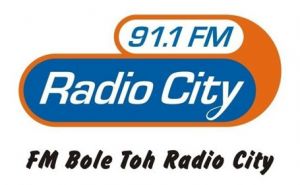U.S. Supreme Court Denies Certiorari in Eminem Digital Download Royalty Case
MUMBAI: MUMBAI: The Supreme Court of the United States denied cert in F.B.T. Productions, LLC, et al v. Aftermath Records, et al. In doing so, the Supreme Court let stand the Ninth Circuit's September 3, 2010 unanimous decision that addressed royalties under a traditional music recording agreement for new methods of music distribution, such as iTunes and cellular phone ring tones.
By denying cert, the Supreme Court has finally answered the question about whether or not Eminem's producers and other artists with similar recording agreements are entitled to higher royalties for music distributed through iTunes and other digital music services. The Ninth Circuit's decision recognized the economic reality of the digital music landscape and held that Eminem and his producers were entitled to a much greater share of the pie now that labels are relying on licensing and avoiding the costs associated with physical distribution of records,... said Howard Rice's Daniel Asimow, appellate counsel for F.B.T. Productions. Needless to say, we are very pleased that the Supreme Court agreed with our position that the Ninth Circuit decision should stand....
Trial counsel and appellate co-counsel Richard S. Busch of King & Ballow commented, We are delighted that the Supreme Court rejected Aftermath's procedural arguments and let stand the Ninth Circuit's very important decision on the merits. Although Eminem and his producers are the only artists to date to pursue this issue through a full judicial resolution–a costly and contentious process that has taken many years–the provisions in Eminem's agreement are also found in many legacy recording agreements. Other artists, at least those who have not negotiated away their rights, should look closely at their contracts to determine if they are entitled to higher royalties for digital downloads....
F.B.T. was represented on appeal by Jerome B. Falk, Jr., Daniel B. Asimow and Sara J. Eisenberg of Howard Rice in San Francisco, CA and at trial and on appeal by Richard S. Busch of King & Ballow in Nashville, TN. In addition, the Samuelson Law, Technology & Public Policy Clinic at UC Berkeley School of Law submitted a brief on behalf of amicus Motown Alumni Association.
Background on F.B.T. Productions, LLC, et al v. Aftermath Records, et al
F.B.T., a Detroit-based music producer, discovered Eminem in 1995 and brought him to the attention of Aftermath Records in 1998. Under F.B.T.'s recording agreements with Aftermath, F.B.T. and Eminem share royalties for records sold or licensed by Aftermath. These recording agreements followed industry-standard forms at the time, and provide for different royalties for records sold... and masters licensed.... The royalty for masters licensed... is substantially higher than that for records sold....
Beginning in 2001, Aftermath's parent company, Universal Music Group, entered into a number of agreements with digital media providers, such as Apple, for the provision of digital downloads. In 2006, F.B.T. discovered that Universal was paying royalties for these downloads under the records sold... provision instead of the masters licensed... provision. Because the transaction between Universal and Apple involved the licensing of a master—and because Universal had none of the costs associated with traditional manufacturing and distribution of physical records — F.B.T. contended that the higher masters licensed... royalty should apply. After the parties were unable to resolve their differences, F.B.T. brought an action against Aftermath and Universal in federal court in Los Angeles.
Before the trial court, both sides moved for summary judgment on their respective interpretations of the contract. The trial court denied the motions and the case proceeded to trial in 2009. The jury found for Aftermath and Universal, and the judge thereafter awarded more than $2.4 million in attorneys' fees against F.B.T.
In its September 3, 2010 decision, the Ninth Circuit reversed and found that the F.B.T's reading of the contract was correct as a matter of law. The case now returns to the district court for a determination of F.B.T.'s damages and an award of attorneys' fees in favor of F.B.T.














